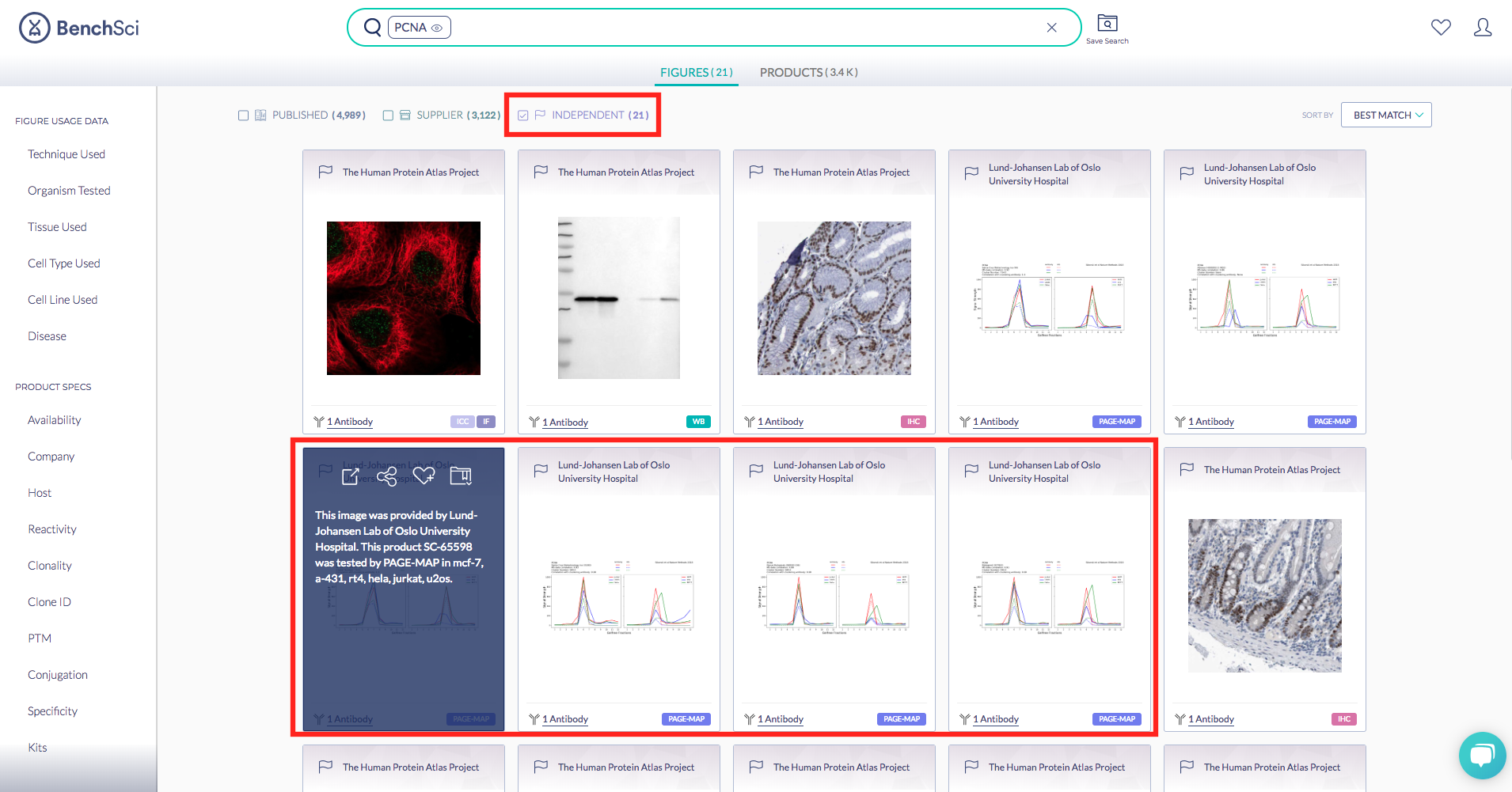Happy New Year! We hope everyone had a relaxing and well-deserved break. While the first day back to the lab is always bittersweet, we have several new features on BenchSci to help jumpstart your experiments in 2019.
Excited? Here we go:
Improved Detection of Antibody Usages
We’ve improved our algorithm to pick up previously undetected antibody usages from publications in which the technique was not explicitly stated by the authors. This allows us to extract information and gain better insight into what is happening in the experiment.
This algorithm update allowed us to dig deeper into the papers for antibody usages, and increased the total number of published use cases on BenchSci by ~397K!
PAGE-MAP Antibody Validation Data, Exclusively on BenchSci
The 5 pillars for antibody validation have been well-documented in the literature (Uhlen et al., 2016, Fredrik et al., 2018), but these validation data are very hard to come by in public databases, and often can only be obtained from experiments you run yourself.
Knowing the importance of antibody validation to the “Antibody Crisis,” we collaborated with a research leader in proteomics, Dr. Fridtjof Lund-Johansen of Oslo University Hospital, to collect unique antibody validation data as described in his latest paper in Nature Methods.
In short, Dr. Lund-Johansen developed a novel, high-throughput pipeline for antibody validation using polyacarylamide gel-electrophoresis (PAGE) followed by microsphere affinity proteomics (MAP) and mass spectrometry (MS) analysis.
Roughly 6000 commercial antibodies were validated via PAGE-MAP/MS, and the data are available exclusively on BenchSci under the “Independent” data type. To view these data, search for your protein target and find them under “Independent” data type, like so below:

What do you think about our latest update? Do you have antibody validations that you’d like to share with the research community? Let us know in the comment section below. We’ll showcase your data and give you (or your lab) the full citation.
Happy researching!